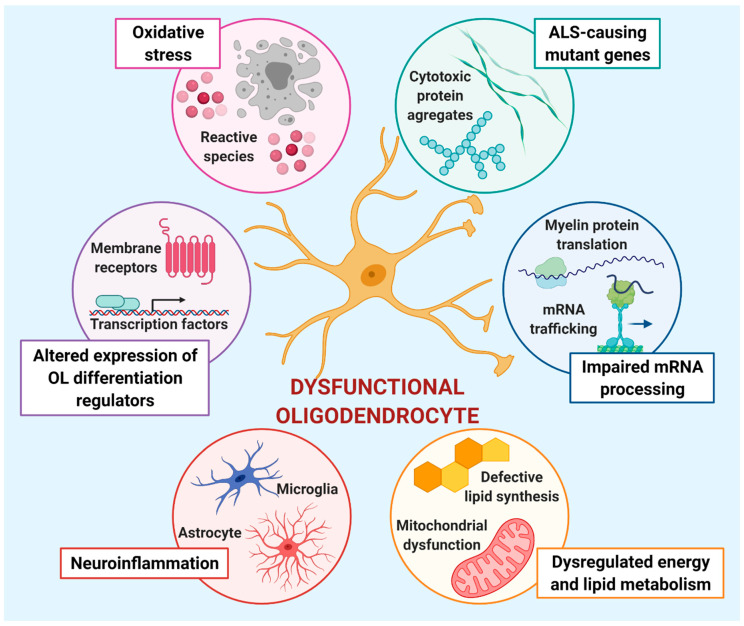Figure 3.
Mechanisms contributing to oligodendrocyte (OL) dysfunction and degeneration in ALS. The presence of ALS-related mutant genes in OLs has been shown to produce detrimental effects by inducing alterations of their normal function or by the formation of cytotoxic protein inclusions. Moreover, given that several ALS-linked genes are involved in mRNA processing, impaired trafficking of myelin-associated mRNAs from the nucleus to cell processes and their translation have been implicated in remyelination failure. Besides genetic mutations, other factors dysregulated in ALS may contribute to the generation of dysfunctional OLs. These include the altered expression of key regulators of OL differentiation, i.e., transcription factors and membrane receptors, and abnormalities in OL metabolism, impacting the mitochondrial energy production and the synthesis of lipids required for myelin repair. Proper OL differentiation may be also affected by the harmful inflammatory environment, characterized by the overactivation of microglia and astrocytes. All these detrimental processes also concur to put OLs in a condition of extreme oxidative stress, further impairing their functions.

